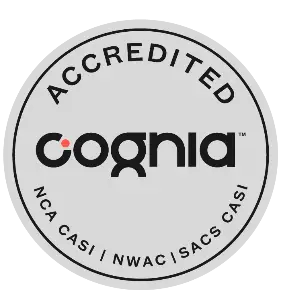Utah Code §53G-6-803 (1)(a) provides that a “student’s parent or guardian is the primary person responsible for the education of the student, and the [school] is in a secondary and supportive role to the parent or guardian. As such, a student’s parent or guardian has the right to reasonable academic accommodations from the student’s [school],” including accommodations on parental decisions regarding retention. Section (2) provides that the school “shall reasonably accommodate a parent’s or guardian’s written request to retain a student in kindergarten through grade 8 on grade level based on the student’s academic ability or the student’s social, emotional, or physical maturity.”
Each retention case shall follow the school team referral process. A school team (comprised of a school administrator, parent(s)/legal guardian(s), and one or more of the following: teacher(s), counselor, and/or school psychologist) will consider individual patterns of growth, data, and information to evaluate the requested retention. Each request for retention should be approved or denied at the local school level. The data, as outlined below, should be collected and considered in the evaluation for each student’s retention.
In pre-K programs, retention is not available.
In grades K-8, the final decision to retain a student is the responsibility of the parent or guardian unless the school team, under the direction of the school administrator, determines and documents that retention would be an unreasonable accommodation. In the event that the school team determines that, the request for retention for a student in grades K-8 would be an unreasonable accommodation, parent(s)/legal guardian(s) may request a district-level committee, formed and led by the School Psychologist Specialist in the department of Student Wellness Services, to review the local school’s decision. The school team shall provide data and information that demonstrates to the district level committee that the request for retention of a student in grades K-8 would be an unreasonable accommodation.
In grades 9-12, the final decision to retain a student is the responsibility of the evaluation team under the direction of the school administrator. In the event that agreement cannot be reached by the team, parent(s)/legal guardian(s) may request a district-level committee, formed and led by the School Psychologist Specialist in the department of Student Wellness Services, to review the local school decision.
Retention regarding any English Learner (EL) student should occur in consultation with the Student Advocacy and Access Director or designee. The Student Advocacy and Access Director will coordinate necessary evaluations to provide the parent/legal guardian with information on the linguistic and cultural elements of the request to retain.
If during the retention process, the data and information indicate and the team suspects the student may be a student with a disability, the school must follow “Special Education Child Find Procedures” (USOE Special Education Rules, Section II). Students who have been determined eligible for and are receiving Special Education services are considered for retention only if the retention is consistent with the student’s IEP.
Grades K-3 Guidelines
- The student’s physical, social, emotional, behavioral, cognitive, and academic development should be considered. The school administrator will collect initial data and information from the classroom teacher regarding the student’s development in the class. After gathering the initial data and information, if the school administrator has serious concerns that the requested retention could be an unreasonable accommodation, additional data, and information should be obtained as outlined in the Grades 4-8 Guidelines. The data and information gathered by the school administrator shall be shared with the parent or legal guardian to assist in making an informed decision about retention. Unless the school administrator finds that the data and information indicate that the requested retention is an unreasonable accommodation, the parent’s or guardian’s request to retain shall be granted.
Grades 4-8 Guidelines
- A. The student’s physical, social, emotional, behavioral, cognitive, and academic development should be considered. The school psychologist, under the direction of the school administrator, and with parental consent, will collect data and information from as many sources as needed to assist the parent or guardian to make an informed decision. Tools used to collect data include, but are not limited to:
- Official student reports/data (curriculum-based measures criterion-referenced tests, benchmark assessments, progress monitoring, report cards, responses to targeted instruction/intervention, etc.).
- Interviews with the student, parent, school counselor, teachers, administrators and others as needed.
- Completion of the Light’s Retention Scale is recommended as part of the evaluation.
- Other academic, social, behavioral, and psycho-educational assessments as needed. These could include but are not limited to:
- Cognitive development, as assessed by a standardized, norm-referenced intelligence test.
- Academic achievement, as assessed by a standardized, norm-referenced academic achievement battery.
- Social-emotional and behavioral assessments completed by parent, teacher, and, if appropriate, self-report
- Extenuating circumstances; i.e. health, mobility, attendance
The data and information gathered by the school team shall be shared with the parent or legal guardian to assist in making an informed decision about retention. Unless the school team finds that the data and information indicate that the requested retention is an unreasonable accommodation, the parent or guardian’s request to retain shall be granted.
9-12 Guidelines
- Retention in grades 9-12 should only be considered in extreme cases and is considered an unreasonable accommodation unless the parent or guardian provides clear evidence to the contrary.
- If circumstances warrant retention consideration in grades 9-12, procedures as listed under Grades 4-8 Guidelines should be followed.
- Refer parents to the Utah High School Athletic Association for policies pertaining to high school athletic eligibility.
- If a student does not graduate with his/her graduating class and still desires to pursue additional education, subsequent education will be offered through the adult education program.
This online presentation is an electronic representation of the Canyons School District’s currently adopted policy manual. It does not reflect updating activities in progress. The official, authoritative manual is available for inspection in the office of the Superintendent located at 9361 South 300 East Sandy, UT 84070.

